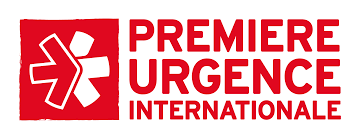.jpeg)
Output 1: Conduct a rapid assessment and situation analysis of the NCD situation in Syria
Conduct a situation analysis to assess past and present NCD efforts and response through different modalities including in depth interviews with relevant stakeholders and desk review of key documents. This consultant will be responsible for:
• Assessing the magnitude and trends of NCDs and their risk factors within Syria's sociodemographic and economic context.
• Evaluating coordination among governmental and non-governmental actors in the NCD response, identifying opportunities for collaboration and cooperation.
• Reviewing existing NCD data collection and surveillance systems to identify areas for improvement, aiming to enhance evidence-based decision-making and program effectiveness.
• Assessing the newly established government structure, as well as existing strategies, policies, plans, and programs related to NCDs.
• The health sector capacity assessment will require the consultant to:
• Map existing NCD services by delivery level and their integration, including:
o Availability of essential resources (infrastructure, staff, skills, equipment, supplies, referral)
o Ownership (public, private for-profit, private non-profit/NGOs)
o Continuity of care during and after emergencies
• Assess community ownership and engagement in NCD prevention and management.
• Evaluate service delivery, including the availability, accessibility, and quality of healthcare services and medications for NCDs during the ongoing crisis, with the aim of improving service quality and expanding coverage.
Output 2: Facilitate, manage and document the NCD multistakeholder workshop.
Support the organization of a workshop to review the healthcare system's response to NCDs and develop strategic recommendations for the way forward. The consultant will:
• Draft a preliminary multisectoral action plan before the workshop to be circulated and reviewed by stakeholders.
• Coordinate and collaborate with the Ministry of Health (MoH) and the WHO Country Office (WCO) in planning the workshop, including developing the agenda and presentations.
• Document the workshop proceedings, ensuring comprehensive note-taking and capturing key discussions and decisions.
• Prepare a structured workshop report, summarizing presentations, participants, discussions, and key recommendations.
• Provide technical guidance for the establishment for a multisectoral and multistakeholder committee for NCD prevention and control in Syria (TORs, work modalities, composition etc).
Output 3: Finalize the multisectoral action plan for NCD prevention and control.
• Review the draft strategy and accommodate all proposed changes based on the stakeholder consultation.
• Identify and prioritize key areas for strengthening the health system's NCD response in Syria, based on the findings from the situation analysis and workshop discussions.
• Develop a comprehensive action plan that outlines strategic directions (long term) and key interventions (short term) to address NCD priorities, with a defined timeline and budget.
Deliverables:
● MONTH 1: Report of the situation analysis.
● MONTH 2: Multistakeholder workshop report.
● MONTH 3: Multisectoral Strategy and Action Plan to guide Syria health system response for NCDs in the short and long-term, especially after crises
- Qualifications:
Essential: A university degree in public health, economics, social sciences, or a relevant field.
Desirable: Advanced university degree in one of the above fields.
- Experience required:
Essential: at least 5 years of experience in undertaking situation analyses, and development of strategic documents
- Skills / Technical skills and knowledge:
- Good knowledge of the setup in Syria’s health system
- Good communication, research, analytical and writing skills
- Language requirements:
English & Arabic proficiency required
Advice for your protection
We recommend that you read the application method carefully and adhere to the instructions for applying for jobs and tenders.
.jpeg)
The World Health Organization (WHO) and its partners have been responding to the large-scale, and protracted crisis affecting Syria for over 14 years. The overall inter-factional armed conflict, exacerbated by the massive earthquake in early 2023, hyperinflation resulting from sanctions and 85% of households living in poverty[1] has hugely increased protection risks. These risks include human trafficking, child marriage, gender-based violence (GBV) as well as sexual exploitation and abuse (SEA), among many others[2]. During late 2024, a dramatic and unexpected change took place in Syria when the long-term leadership was toppled, making way for the new caretaker authorities to take power and begin a new phase for Syria. This change means that there may be a lifting of sanctions, increased donor interest in the country and opportunities also for early recovery investment and development pathways. Despite these more positive potentials, a high number of returns, further displacements, a potential resurgence of armed groups and also uncertainty about how the caretaker authorities will be able to manage law and order present major SEA risks, which according to the IASC, have increased Syria’s vulnerabilities to major SEA risks.
WHO and all UN agencies are bound by the six core principles of PSEA (protection from sexual exploitation and abuse),[3] which affirm that acts of SEA are serious misconduct; all WHO personnel have an obligation to take steps to prevent and mitigate the risk of SEA and abide by UN standards on PSEA.[4] As a member of the IASC, party to interagency coordination mechanisms and leading the UN health response in Syria, WHO has a duty to assure that its partners, collaborators and affected communities under the health response are aware of PSEA.
WHO is also an active member of the interagency PSEA network at the national level based in Damascus, and also in the respective sub-national networks in Aleppo and Qamishli. As a part of its duties to the interagency network WHO has aligned its annual workplan with the interagency’s and also pledged funds to support specific interagency activities. A major deliverable of the interagency that WHO is funding during 2025 is the IARA (Interagency Risk Assessment) exercise that will compliment the IARA that has been carried out in Aleppo during 2024, and will address Damascus, and Qamishli areas. Within this overall framework, WHO seeks the support of a international remote consultant to support in the data collection, analysis and overall preparation of the report.

HR MANAGER
PUI) Première Urgence Internationale)
موظف استقبال
اعلانات.png)
Admin Assistant
Save the Children.png)
HR/Safeguarding Officer-Idlib - Aleppo
Bonyan Organization
مدير إداري
اعلانات
